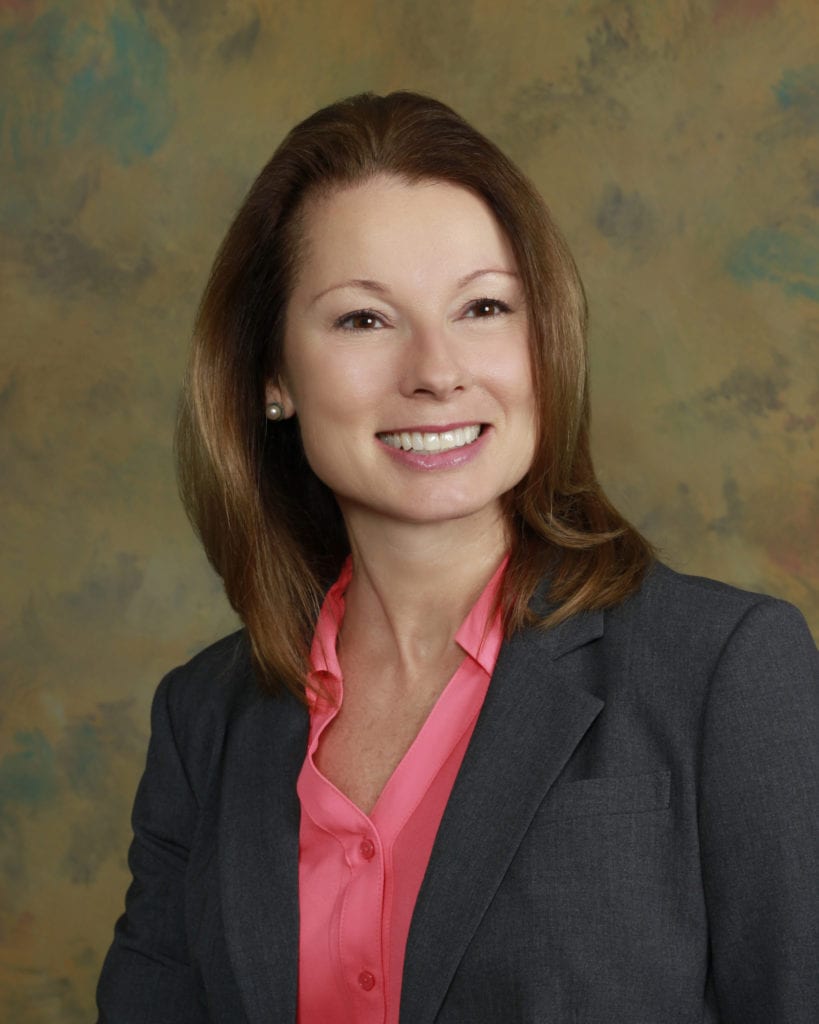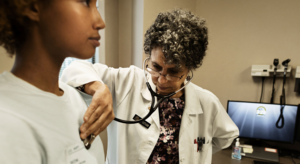
Dr. Helen Rhodes is an OB/Gyn physician with more than 25 years of experience who transitioned from working as an employed physician in an academic center to opening her own solo gynecology-only private practice. She also travels to do full-scope OB/Gyn care for rural hospitals in TX and NM and is the medical director for several plasmapheresis centers.
Today we’re diving into what it’s like to have a nonclinical role at these plasmapheresis centers.
When you first heard about working at a plasmapheresis center, what were your thoughts?
I had assumed that some donors were doing this for drug money and that the centers would be unclean. I was wrong. There are people from all walks of life that come to the centers, and the facilities are very clean, well-run, and operate under strict guidelines.
How did you find out about working at a Plasmapheresis center?
A friend who is also an OB/Gyn told me about this opportunity in 2015 and I declined because I had just started a Master’s Program and didn’t feel I could fit the required hours each week into my schedule along with running my practice and completing coursework. Then in 2017, the opportunity presented itself again and I took it. I ended up working for two different companies.
Can you tell us about the work you do as the Plasmapheresis Medical Director?
As a CMD, Center Medical Director, I have a variety of responsibilities.
I’m part of the Medical Operations Team and also work closely with the Quality Team. I report directly to the Division Medical Director. The other members of the Medical Operations Team are the Medical Staff Associates (nurses) who ensure donor suitability and manage adverse events when they occur before, during, or after a donation. The most common adverse events are hypotensive reactions and phlebotomy site hematomas. Less common are citrate reactions, seizures, loss of consciousness, and cardiac events. I oversee the training of newly hired Medical Staff Associates. Each week, I observe an MSA performing a Health Assessment examination on a donor. Once a month, I conduct a Medical Staff Meeting at which time adverse event trends, medical communications, and a monthly topic are discussed. I’m available during normal business hours for questions the MSA’s may have regarding donor suitability or trending abnormal screening results. I usually receive 5 calls per week regarding this.
As Laboratory Director, I maintain my CLIA license and am responsible for signing off everyone in the center who performs moderate complexity testing. Standards for calibration of the instruments are reviewed on a regular basis.
What is your schedule like?
Each center that I supervise requires one 4-hour shift per week on site. I need to be available by phone 7 days a week during normal business hours for calls from medical staff regarding donor suitability. It’s uncommon to get more than one call a day. There is ample time to complete your tasks during the 4-hour shift. It is nice to be able to sit at a desk in a relaxed environment and have relatively few interruptions. I enjoy that part.
How is it doing this work during the COVID-19 Pandemic?
It is rewarding as it gives me a chance to help others. Plasmapheresis companies are participating in the collection of convalescent plasma from recovered Covid-19 individuals who have antibodies to the virus. It’s also a financial relief to be able to maintain income as I’m only able to see patients in my practice via telemedicine and volume has significantly declined. Currently, I’m unable to perform office procedures or outpatient surgeries.
What three things do you like the most about your job?
I would say, working with different teams at the different sites, being able to work in healthcare and use my “nonclinical” brain, and not having overhead as I do in my practice. It’s also interesting to see all of the products that can be made from plasma.
What are the hardest parts of your job?
Consistently understanding and implementing regulatory guidelines as well as fitting in the 4-hour shifts on a regular basis due to the time constraints of my other jobs. But I tend to overcommit!
What other roles are there for physicians at plasmapheresis centers?
There is the Division Medical Director (DMD) position who provides oversight of the Center Medical Directors (CMDs) like me, in a defined geographic region of the country. They work fulltime, have benefits and do a fair amount of travel.
Can physicians who have not completed residency fill any of these roles?
Yes. They need to have completed one year of residency and have an active license in the state of the center.
What type of physician would be a good fit for the medical director role?
Ideally, a physician with residency training in Pathology, Hematology, or Infectious Disease. But I feel any physician would be a good fit given our innate ability to lead teams and aptitude for math and science. The ability to work in teams, being consistently available for questions from the MSA’s, and an aptitude for operations would be desirable for this position
Can you give any guidance about compensation?
The rate is comparable to other contract physician jobs. I’ve worked for two different plasmapheresis companies. One company paid for mileage, the other did not. Both companies paid for on-site training.
What kind of compensation do the donors receive?
The donors are paid for the amount of plasma collected, ranging from
$30 – $50 dollars. They are in the center for 1 – 2 hours. The FDA allows donation of plasma twice weekly. For many individuals, donating plasma is a part-time job.
They get a reloadable card with the money on it. They don’t get cash.
The more they donate each month, the higher the rate of compensation they make. Individual centers may offer bonuses related to holidays in addition to raffles and other events.
Are plasmapheresis companies hiring?
Yes, they are. The back-up CMD position is a good way to get started. As a back-up CMD, you are required to work at the center for one 4-hour shift per month. In addition to being a full-time CMD for one center, I am back-up CMD for several other Houston area centers as well as two centers in Albuquerque.
Do you have a story you’d like to share?
One of the centers where I work had a patient with immune deficiency disorder come to the center to meet the donors. This was a very special event as it allowed the donors to understand more directly how their plasma donations are saving lives.
What is the word out about plasma from those recovering from COVID? Have you seen many donors like this?
The plasmapheresis industry is participating in convalescent plasma treatment for COVID-19 patients. Donors who have recovered from COVID-19 are eligible to participate in this program.
A big thank you to Dr. Helen Rhodes for doing this interview with me. I so appreciated getting to hear her insider’s perspective on this interesting nonclinical option with a potential benefit of helping the fight against COVID!
Latest Posts
Find what you're looking for:
Popular Categories:
Career Change | Career Enhancement | Job Search | Personal Development






















